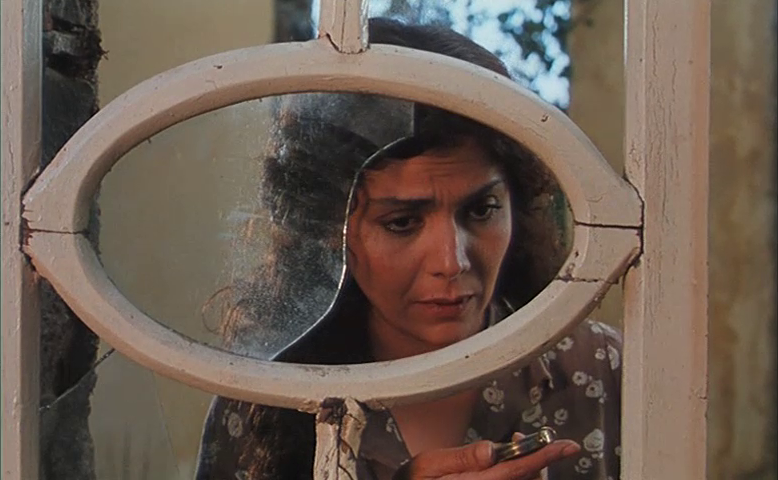Al-lail (1992) aka The Night
Like Tarkovsky's The Mirror, and Terayama's Pastoral: To Die in the Country, Mohamed Malas's The Night is about confronting the past, and attempting to overcome the sweet nostalgia, and the bitter tragedy. Starting with a series of abstract recollections narrated by Malas's alter-ego, and his mother, Wissal, the film settles down into the story of his parent's marriage, his father's political activism, the coup-ridden birth of independent Syria, and everyday life in the now largely destroyed town of Quneytra. His father died humiliated and tortured by his inner demons after the Arab-Israeli War, and for Malas, his hometown evokes feelings of shame and longing for many Syrians, especially those who lived there (as well as the hundred or so holdouts who still do). Malas himself has said,
"I’ve
experienced things and places that are no longer there, no longer
visually accessible; but in my head they are so vivid and I want to
share them with the world. As a filmmaker, I see this as a
responsibility; a calling." His images are lyrical in the best sense of the word, and have a kind of golden glow to them, even the horror comes through in soft-focus, laced with a longing for a time and place forever gone. But Malas is not detached from reality, there is real anger here, anger towards the people's failure to stand up for themselves, and anger at the authorities, both international, and national, for abusing and suppressing the legitimate desires of the people. The Night is also a eulogy for a lost childhood, and a cry of sorrow at the loss of his beloved father. But ultimately, this a hopeful film, the people who populate it are a hopeful people, and there is a belief in the future, that maybe, things will get better.


Do you know where I can find a copy of this film? With english subtitles?
ReplyDelete